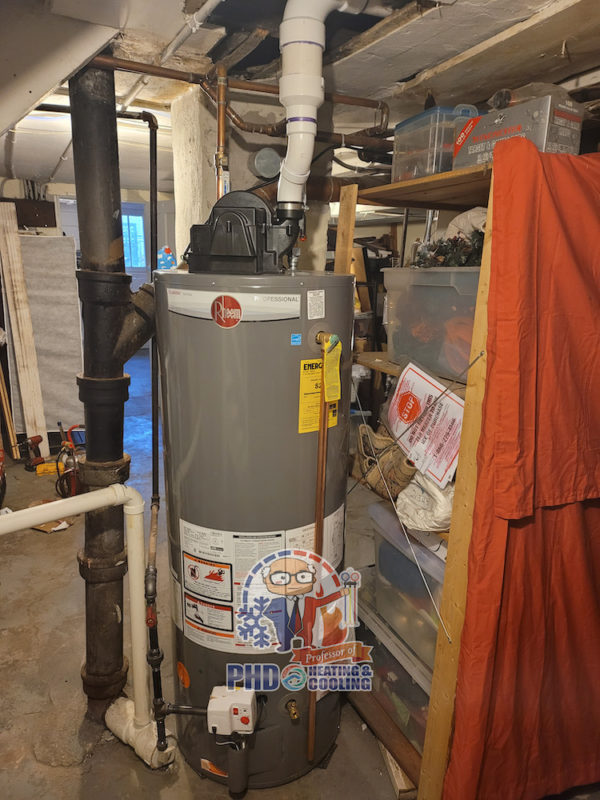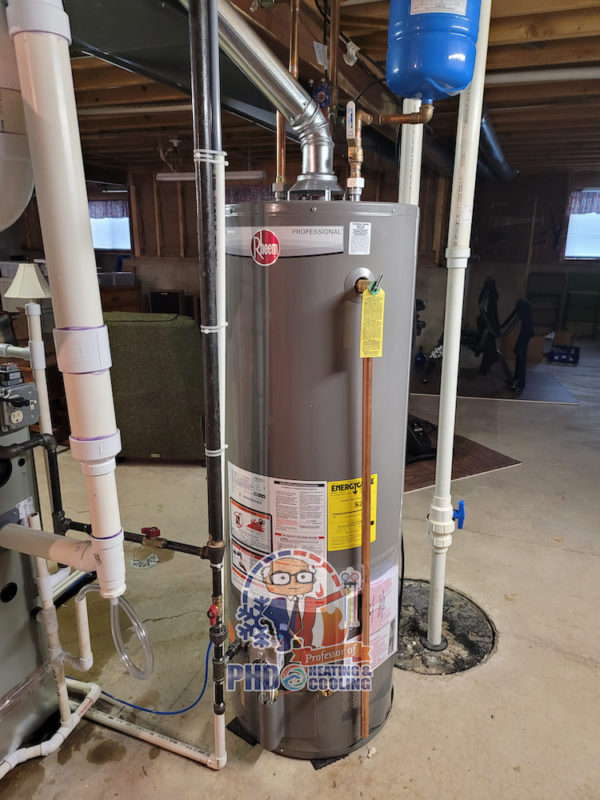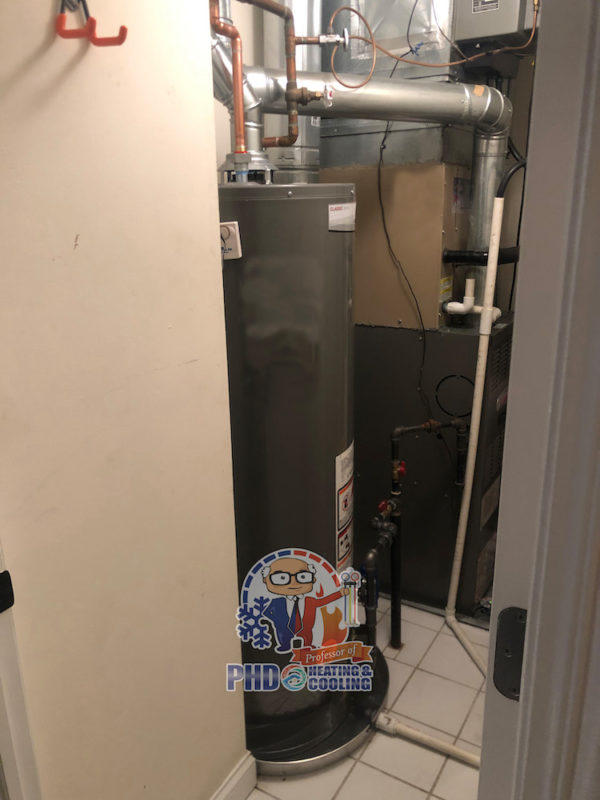1. Your Water Heater is too Old
Nothing lasts forever, least of all a water heater. During the course of an average home occupancy, a resident is bound to face that moment where they need to replace a water heater. Trouble is, most homeowners are unaware of when a water heater reaches its expiration date. Not knowing this, however, can lead to major risks when the heater starts acting up due to old age.
2. Rusty Water or Heater Inlet Valve
Even though steel is the strongest material on the face of the earth, it has a weakness: rust. When corrosion takes hold on a steel surface, it slowly spreads and eats through the steel in certain spots. On water pipes and tanks made of steel, rust serves as the warning sign for oncoming leaks.
Trouble is, it’s often hard to tell whether rust is coming from the water heater itself or the pipes that lead to your faucet. In any case, rust is an immediate problem that needs to be rectified for the sanitation of your household.
3. Water Heater Noise
Another telltale sign of an ailing water heater is noise from the tank. As the heater ages, rumbling noises will start emanating louder and louder as the tank heats up water. In households that consume large amounts of hot water, the problem is likely to be even more pronounced once the cause takes hold.
4. Water Heater Leaking
As your water heater nears the end of its life expectancy, there’s an increased chance that you’ll see water appear on the floor around the tank. When you see water, it generally means one thing: leaks. Depending on where you have the water heater located inside your house, a leak could result in significant property damage. As such, the most dangerous problem that could ever occur would be a serious leak with your water heater.
Warm and hot water are among the most vital household necessities. Without warm water, you can’t wash your hands or take showers, nor can you clean dishes or run your laundry machine. Most residents take warm water for granted, and are therefore set off balance whenever water from the sink or bathtub fails to reach sufficient warmth.
Call us today at (312) 409-33-26 or contact us online to schedule a visit with one of our specialist.
Most of us don't know our hot water heater is going bad until we get nothing but cold water out of the tap -- but things don't have to go that far if you're alert to the clues of a hot water heater that isn't working quite right. If you see these five signs, it's time to call to PHD Heating & Cooling for professional help.
1. Fluctuating water heat
"No hot water at all" may be a no-brainer, but fluctuating water temperature is just as much of a clue that something's wrong. It may mean that mineral deposits have built up around your water heater's heating elements or that the heating elements need to be repaired or replaced.
2. Low hot water pressure
Mineral deposits can do more than reduce the efficacy of your water heater's heating elements. They can also build up enough to block pipes, reducing the water pressure coming out of your water heater. There are a few other issues that can also cause reduced water pressure, including kinked distribution lines or poor design.
3. It leaks
This one seems obvious, right? But it won't be unless you visually inspect your water heater -- something most home owners don't do until the hot water's already out. Incorporate a quick scan for leaks into your monthly maintenance routine, along with checking the smoke detectors in your home.
4. Water that's "off"
Visible or a metallic taste in your water means corrosion somewhere along the lines. If both your hot water and cold water are rusty when they come out of the tap, the corrosion is probably somewhere in your pipes. If only the hot water is rusty, odds are good that the problem is inside your hot water heater. You need professional help -- soon -- to arrest the corrosion before it damages your hot water tank or even causes it to fail. You may also get cloudy water out of the faucet, or water that smells strange (but not necessarily metallic). That's probably mineral deposits at work again; only professional maintenance will help keep them from building up and damaging the inside of your water heater.
5. Unusual sounds
A little noise is natural from your water heater -- after all, it's a major appliance. But if you hear loud popping, banging or cracking sounds coming from it, it's time to call us. Most likely, mineral deposits have built up and caused the appliance to overheat as it works to keep the water hot. If the tank hasn't already started leaking, a flush and thorough cleaning may be enough to keep it working. Have you seen any of these five signs that it's time for a water heater repair?
Call us today at (312) 409-33-26 or contact us online to schedule a visit with one of our specialist.
Today’s water heaters are manufactured to require little or no maintenance, but these maintenance tips could prolong the life of your water heater:
• Drain the water heater twice a year to rid it of collected sediment that causes corrosion. This also increases efficiency.
• Test the pressure-relief valve by lifting the valve’s handle and letting it snap back. This should release a burst of water into the overflow drainpipe. If it doesn’t, install a new valve.
• Lower the temperature setting on the thermostat to 120 degrees Fahrenheit. This reduces damage to the tank caused by overheating.
Call us today at (312) 409-33-26 or contact us online to schedule a visit with one of our specialist.
Schedule service / Get my free quote
Fast, reliable, and quality results. Contact us for a free quote today.










